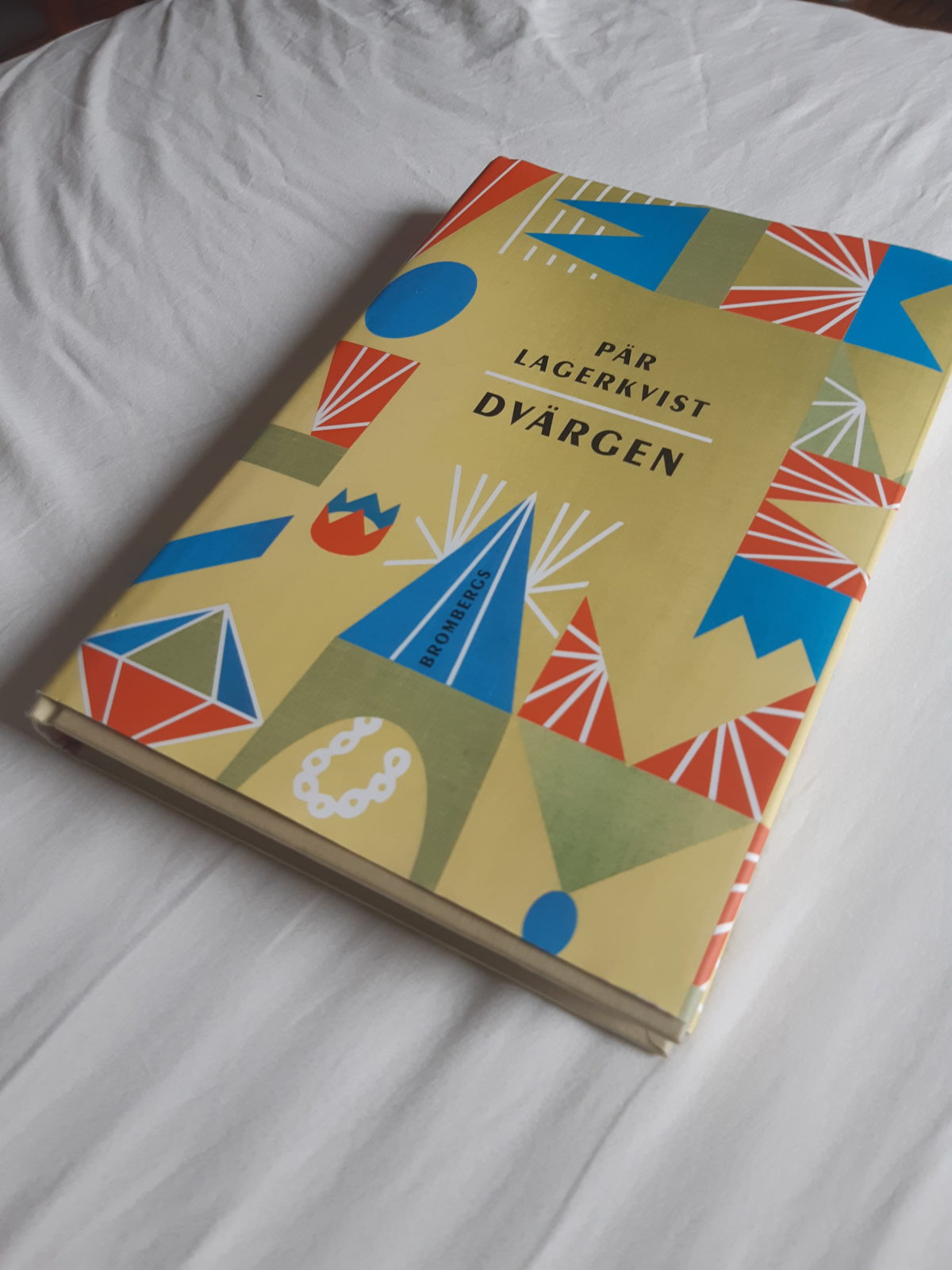When I did my semester abroad at Stockholm University, I took a course in modern Swedish literature (offered in English, since our Swedish wasn’t much more advanced than “En stor stark, tack!”). It was by far the best literature course of my undergrad career, in large part because of the excellent reading list. The course literature included Barabbas by Pär Lagerkvist, which made such a strong impression on me that I started building a small library of his books as soon as I moved to Sweden.
As I write this, I realize that I have to start almost every review here with some kind of explanation as to either how I came to hear of a book, or why I chose to read it, or both. I guess context is important to me. Here, for example, you can (rightly) infer that I went into this book biased and well-disposed towards Lagerkvist, and now you can (rightly) expect that I liked it. Now I can dispense with the pointless formality and hubris of passing judgment on a well-established classic and just ramble a bit. My point here isn’t to encourage—or discourage—anyone from picking up something relatively new and/or obscure. I just want to remember what I read and, in this case, present worthy Swedish books to my English-speaking friends. Lagerkvist was a huge international hit in his lifetime but he seems to have returned to mere domestic fame; these days Sweden’s entries in world literature appear to be limited to Strindberg and Nordic noir, which I feel is deeply unfair. Fortunately, it’s my understanding that there is an English translation of Dvärgen available and that it is of excellent quality, so you don’t have to miss out on this one.
Anyway! Dvärgen is simply the diary of a court dwarf in Renaissance Italy, spanning maybe six months to a year for the bulk of the action. It includes war, assassinations, intrigue, plague, famine and all the rest through the eyes of said unnamed dwarf, a character that literary criticism has near unanimously described as “evil incarnate.” That’s the interpretation I was thinking about after I finished the book. Is the narrator really meant to be as much?
I don’t ask the question to “woobify” him, as the expression goes—to turn a clearly morally corrupt character into a sympathetic and victimized hero. While his role as as servant means he’s often acting on behalf of others, the dwarf also carries out several actions on his own initiative, motivated by rage and sadism. Nor is there any attempt to make him appealing or “likeable,” like a secret fondness for animals or sensitivity to music. He finds all of the nobler human emotions and pursuits abhorrent or ridiculous; the only things he confesses to enjoying are war, violence, and bloodshed. The extent of the sympathy evoked for him is the absolutely dehumanizing treatment he receives from just about everyone around him. Stepping back, we can also of course point out that we are reading his own diary and account of himself, which is naturally how he wants to be experienced and how he is choosing to present himself, but that is an ambiguous point we can, at best, only infer. I’m sure there’s been more than one thesis already about the role of toxic masculinity and ableism in forming his character.
Rather, I ask the question because just as much of the evil in the book—if not most of it—is someone else’s doing. The prince decides to go to war entirely of his own volition, without consulting the dwarf at all. Likewise, when war proves fruitless, he decides to lure the enemy into an assassination with promises of peace and free trade. The dwarf might be the one to serve the enemy poisoned wine at the celebratory dinner, but he does so only at the order of the prince. And while the dwarf decides of his own accord to inform the prince of the tryst between the enemy prince’s son and the prince’s own daughter, the prince is the one who, in a fit of impetuous rage, murders the young man in his sleep.
Moreover, if we are to take the dwarf at his word, the fear and distaste that people express when they encounter him is nothing more than fear and distaste for what lurks inside themselves. Is this an observation that the reader is meant to take seriously? Or are we to understand that this is projection or warped thinking on behalf of the narrator, and that his claims of true insight and understanding are just so much bloviating?
Life is ambiguous, art is ambiguous, there are no easy answers. Even the ending is ambivalent: yes, the dwarf is in prison and peace seems to reign in the kingdom, but the connection between those two situations is unclear. Does the dwarf have such a supernaturally evil presence that peace cannot be achieved until he is disposed of? Or is the prince genuinely a changed man after facing political and personal consequences for his ambition, and the dwarf’s imprisonment merely an incidental fact following the death of the prince’s wife? The text supports both; the text chooses neither. The unanswered question.


One thought on “Dvärgen”